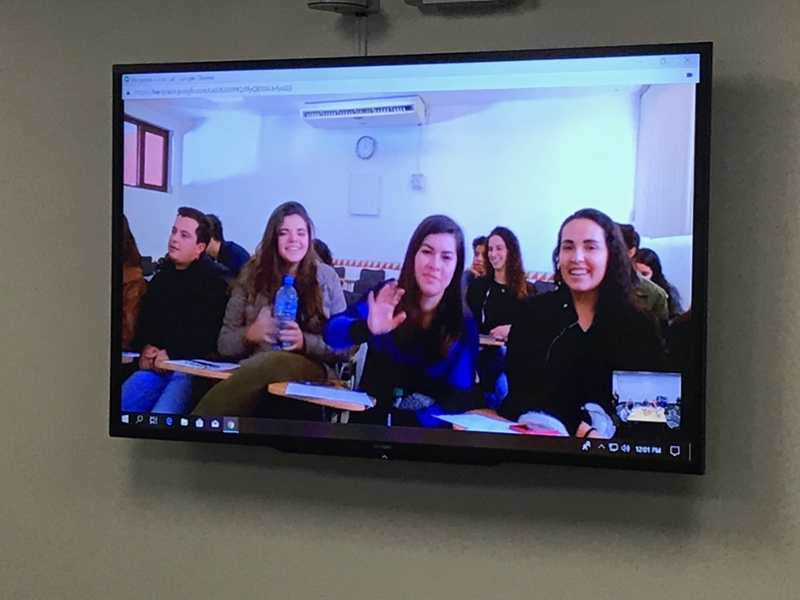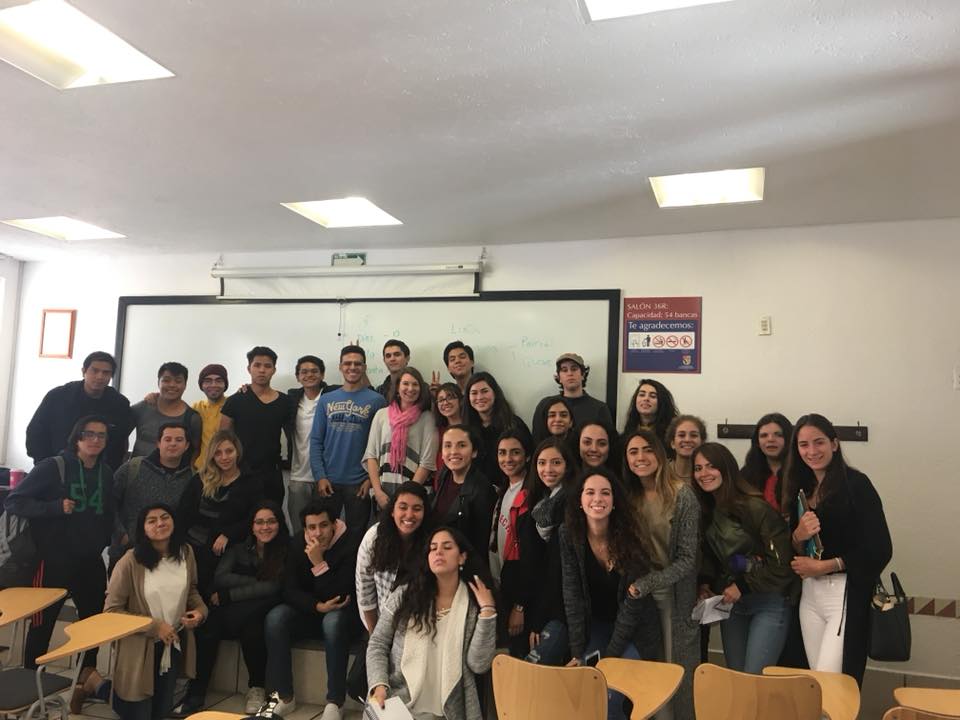
Miami history class hosts Skype chat with students in Mexico City
by Shavon Anderson, university news and communications
It’s unusual for two college classes in different countries to teach identical topics at the same time, in the same room. This month, professors at Miami University and the Universidad Panamericana (UP) in Mexico City pulled it off.
During the fall semester, Elena Albarrán, associate professor of history and global and intercultural studies, and her colleague Sonia Robles, assistant professor in the school of communications at UP, partnered to build a cross-classroom exchange. The goal was to give students authentic insight on issues related to history and the current climate between the U.S. and its southern neighbor.
Elena Albarrán's Mexican History class talks with students in Mexico City via Skype (photo by Elena Albarrán).
Until now, conversations have been through the online platform Discord. Earlier this month, Miami students were able to meet their counterparts face-to-face during a live Skype session in King Library. Albarrán said the classes talked about everything, including gun control, the migrant “caravan,” the role of immigrants in their respective countries, race, class and even Thanksgiving.
“Some students have started confessing very personal details about their lives, controversial or unpopular beliefs that they hold, or strong political positions,” Albarrán said.
Whether students know it or not, the exchange is quietly positioning them as independent thinkers, specifically when it comes to international relations. It’s something Miami senior Alex Reisert came to realize over the semester.
Elena Albarrán (pink scarf) joins Sonia Robles' communications class at Universidad Panamericana during Albarran's recent trip to Mexico City (photo by Sonia Robles).
“It’s shocking because I am completely ignorant of Mexican politics, and I just assumed that’s the way it was supposed to be,” Reisert said. “Interacting with them opened my eyes to how global the world is becoming and how our actions affect our neighbors and vice versa.”
“The biggest thing I learned was that assumptions about cultures are natural, but that they do not determine everything,” Miami junior Jonny Maxwell added.
Throughout the course, Robles wanted her students to study their own history through the lens of Mexican scholars and historians, as well as U.S. academics. Getting interactive feedback from Miami allowed her class to get a different view of what’s often portrayed in popular media and news coverage.
“It’s a great idea to be able to explore both sides of the coin even more during this time when the two nations find themselves connected in some way or another,” said UP student Leo Hernández.
“They became more than just names on Discord, which made it more personal,” Tamara Guzmán, one of Robles’ students, added.
Elena Albarrán (far left) with her Mexican history class (photo courtesy of Elena Albarrán).
Albarrán and Robles want students to question narratives about each country and challenge preconceived stereotypes. Both professors are working to develop a product out of the course, possibly a podcast or short video, and hope to extend the exchange past this semester.
“There can be a shocking difference in how our two cultures think of and evaluate the same events," said Miami student Gregory Hess. "Despite being from two drastically different cultures, sometimes we see things through the same lenses."
“I hope that we don’t lose contact," Beto Hernández, a UP student, said.
To find out more about the course, you can read the original story published by university news and communications in November. Student translation from the Universidad Panamericana are provided by Sonia Robles.


